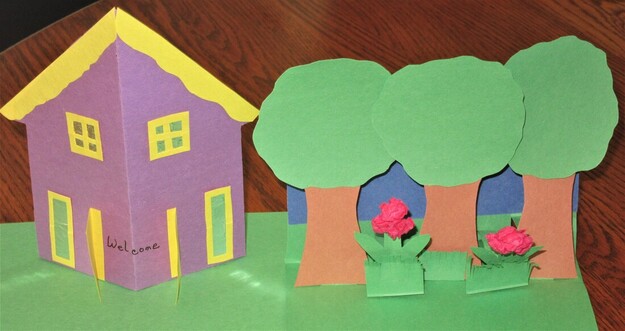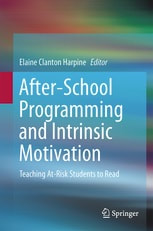 Using hands-on reading techniques helps even struggling students learn to read.
Using hands-on reading techniques helps even struggling students learn to read. A recent poll stated that 67% of parents feel that their children are behind academically in school because of the pandemic. The survey goes on to say that the parents feel that these academic losses are worse than any of the social skills concerns they may have based on school closures and online instruction.
Parents are not the only ones who think students have suffered educational losses.
Public school teachers (K-12) also feel that students have fallen behind academically during the pandemic. A survey from March 2021, shows that teachers feel that approximately 53% of students are showing a significant learning loss.
What do the students say? A very interesting article gives comments from high school students. I’ll only quote three, but I encourage you to take a few minutes and read this article. The students offer insights into the educational problems facing our schools. I have omitted student names.
- Student #1 does not feel that there has been learning loss.
Student #1: “During the pandemic, I don’t feel as if I had experienced the threat of learning loss. In fact, I feel as if I have learned more during quarantine. This is because, during my free time, I have found ways to learn at my own pace and ways to practice what I have studied before.”
- Student #2 points out issues in online education. Maybe the problem comes from how we use online education.
Student #2: “I think when it comes to academics, most students have fallen behind in their learning. Online school did not allow students to learn to their fullest ability; distractions at home affected people’s ability to focus, and isolation from other students affected people’s motivation. Learning over a screen made it hard to communicate with teachers, ask questions, and fully grasp new concepts. Additionally, with fewer classes each day and less overall learning time, teachers were forced to accommodate conventional learning plans, therefore not getting through as much material as previous years. Elementary students, who are just learning essential skills such as reading and writing, have especially suffered from virtual learning; without an engaging environment, it is impossible to maintain attention.”
- Student #3 feels that the assignments were comparable to in-class learning.
Student #3: “Luckily, I do not feel a learning loss academically during the pandemic. Especially, for the school year which started last fall, my courses are very rigorous and I do not feel the homework assignment lessened than a normal school year. I’m online studying for all my sophomore year, but to be honest, the classes are still challenging and I’m learning a lot. My school is doing hybrid learning: one week on campus and one week virtual. The course load is pretty heavy with tests and quizzes almost every week for different subjects. My teachers are always there to set up a zoom with me for office hours and talk with me despite my different time zone. All my classmates open their cameras during the virtual week, and there’s hot history debate and seminar taking place online, discussion, and sharing writing pieces during English class. Many of us may take this for granted.”
We’ve heard from parents, teachers, and students. Is there any research being done on learning loss during the pandemic? Yes, I found one study that concurs with the parent/teacher comments, but it also adds one very important item that must be included: “Learning loss was most pronounced among students from disadvantaged homes.”
This is similar to what Student #3 described. I included this student statement because it explains that online teaching may not necessarily be the problem. The problem may be how we used online teaching opportunities, or the teaching methods used.
Does the Way We Teach Online Make a Difference in the Quality of Education?
Yes, it does make a difference, and the same is true for the classroom. The teaching methods used in the classroom make a difference as to what is learned in the classroom.
Truly, student learning, whether online or in the classroom, relies on the teaching methods being used for success. Teaching methods are not always controlled by classroom teachers (usually they are not). Most school boards, state education departments, and even politicians determine the teaching methods being used in the classroom.
When Schools Select a Reading Textbook, They Also Select a Teaching Method.
Unfortunately, if the reading textbook selected uses methods that have been proven not to work for all students, some students will not be successful learning the material being taught.
-------------
For more about curriculum, read: Reason #9 that Reading Scores Were Worse in 2019: Curriculum Choices Determine a Student’s Success or Failure in School
-------------
Also, the children who need help the most are getting the least amount of help with online teaching. They do not always have access to online resources, but is this a new problem?
Are You Sure That This Is a New Problem Caused by the Pandemic?
If we look at the surveys that we discussed at the beginning of this blog post, we see that that teachers believe 53% of students are showing a learning loss, while the survey of parents showed that they believe that 67% of students are showing a learning loss. Yes, these are just perceptions—what the parents and teachers think. This is not test data, so we do not know for sure how bad the learning loss actually is.
Yet in 2019, before COVID, according to the Nations Report Card, 60% of students were already unable to read at their grade level in 4th, 8th, and even in 12th grade. We had a learning loss going into the pandemic. So, are we seeing a new learning loss or are we looking at the same learning loss that was measured in 2019 before COVID?
There's no way to tell for sure until we get new test data from the Nations Report Card. Of course, no one is testing during the pandemic.
-------------
For a complete report on reading scores: Reading Wars are Over! Phonics Failed. Whole Language Failed. Balanced Literacy Failed. Who Won? It Certainly Wasn’t the Students.
-------------
Should students just sit and wait, or can we start teaching students in a new way that could help them learn right now? As I have stated many times before, I think that we need to change how we teach reading in the classroom and online. I do not think that we should wait. I think that we should change now.
So, the question remains, do you think that students have suffered educational losses during the pandemic? Some have, some have not. It all depends on the way that the students were taught during the pandemic. Either way, we do have proven methods for teaching children to read. We have actually had children move up 4 grade levels at my reading clinic in one year. The pandemic doesn't need to be an educational disaster. We just need to change how we teach children to read.
Yes, We Really Can Teach Children to Read, We Are Just Not Doing It.
We have the teaching methods to enable every student to be successful. We just refuse to change from phonics and whole language and use a method that works.
Yes, I believe that there have been educational losses during the pandemic. I also know that there were educational losses, especially in reading, before the pandemic. We can overcome these losses if we just change how we teach reading.
-------------
See: Vowel Clustering Works Better than Phonics with At-Risk Students
-------------
This is the first of a three-part series on: How Can We Overcome the Education Losses Students Have Experienced from the Pandemic? Stay tuned. Next, we’ll talk about some of the methods being explored for overcoming educational loss during the pandemic.

You can also download individual chapters from the publisher's website.
 RSS Feed
RSS Feed
